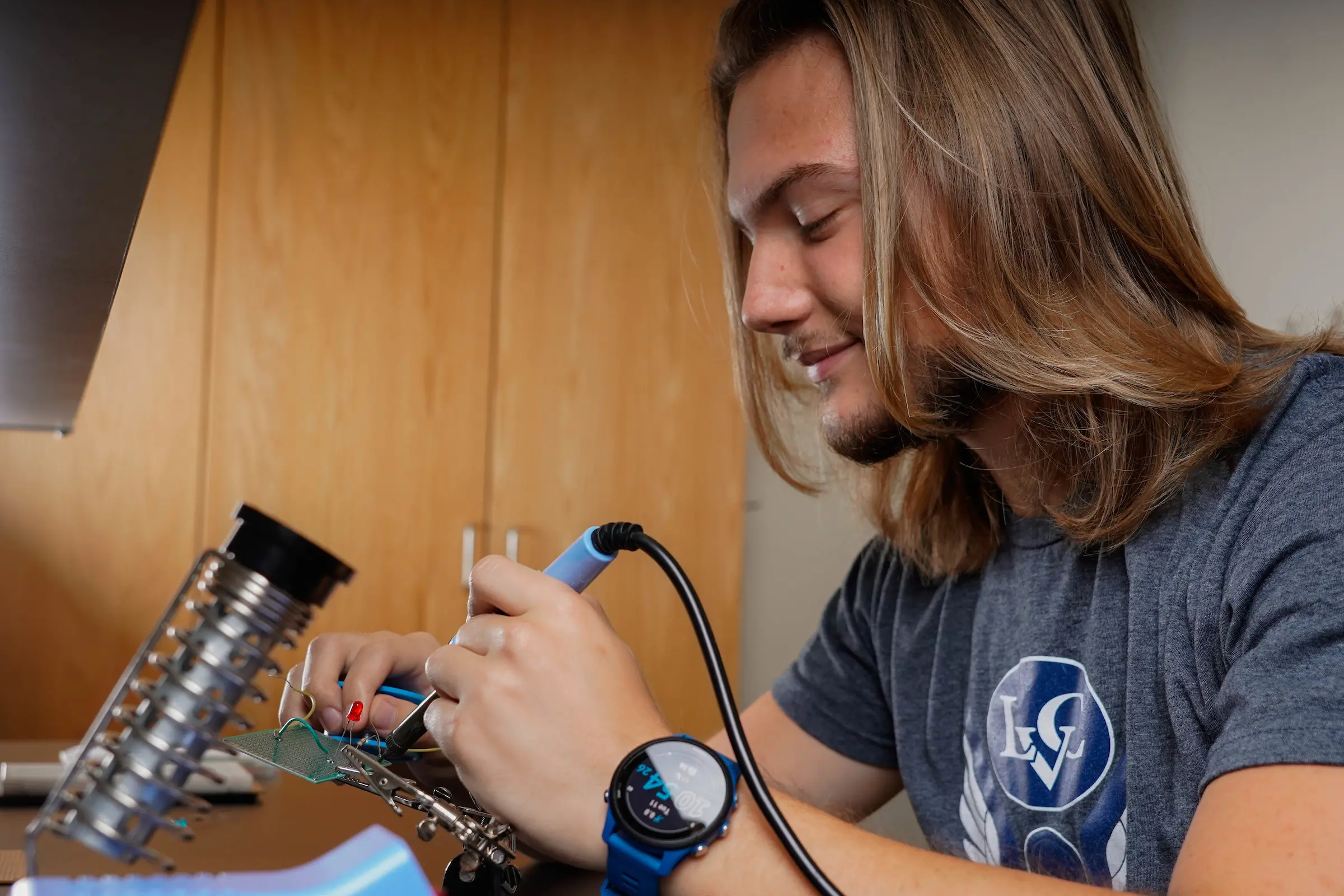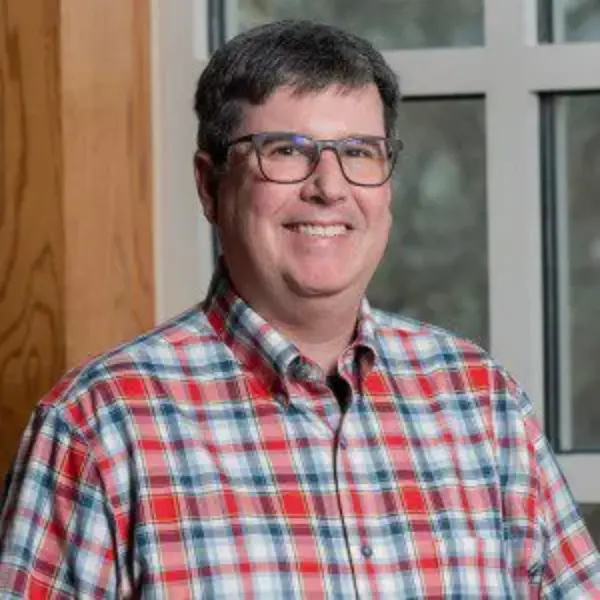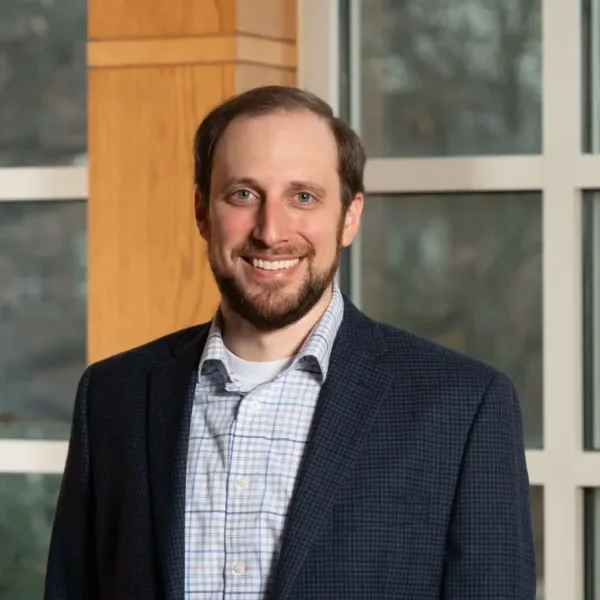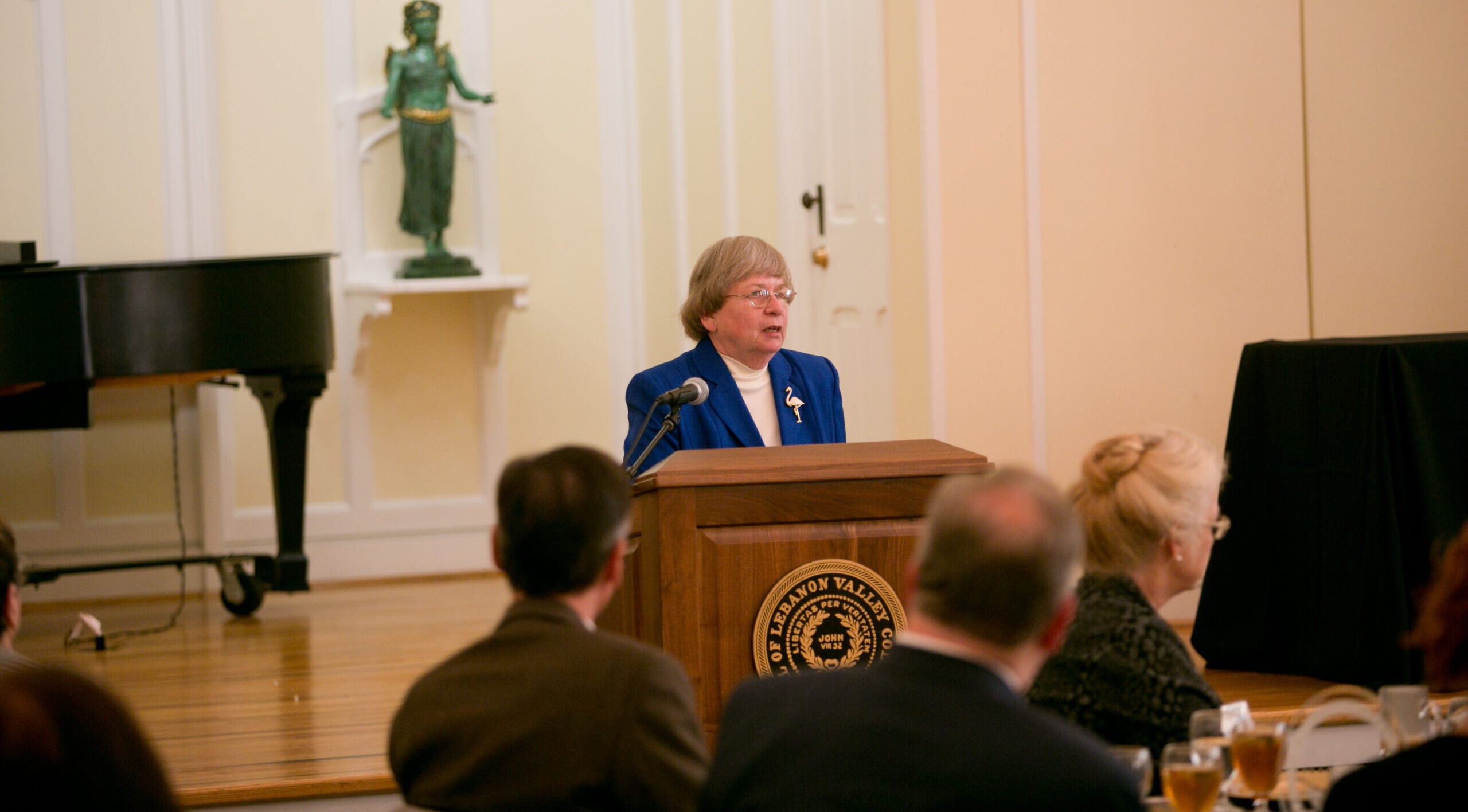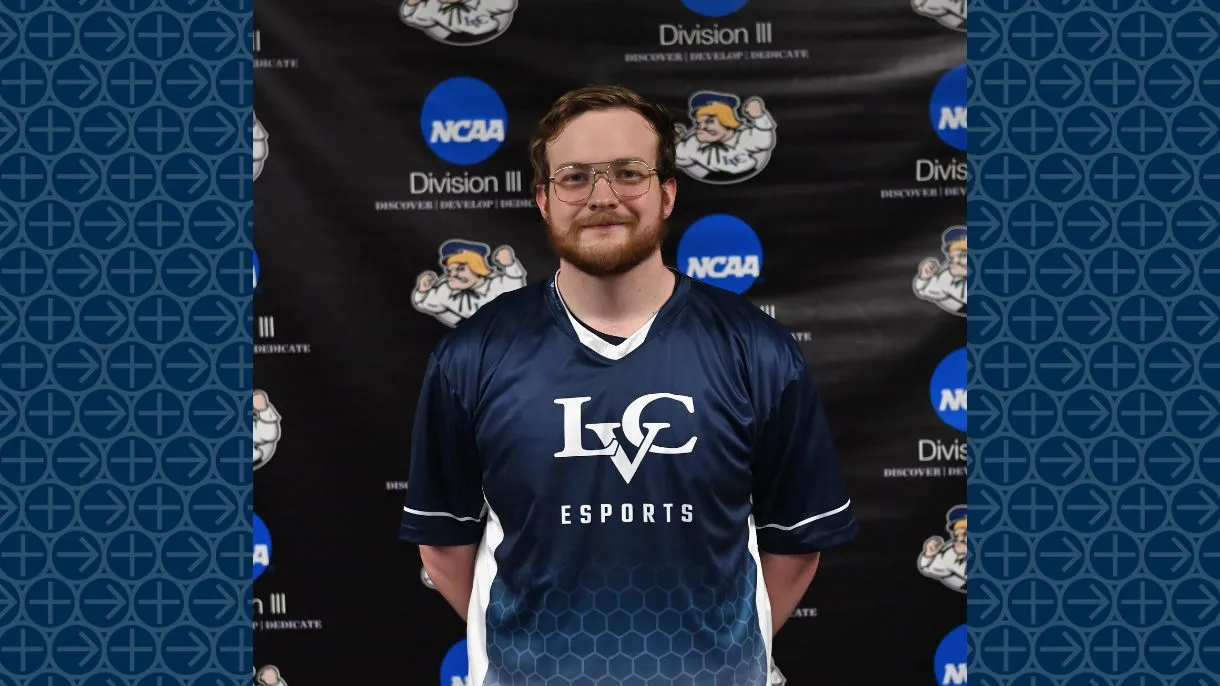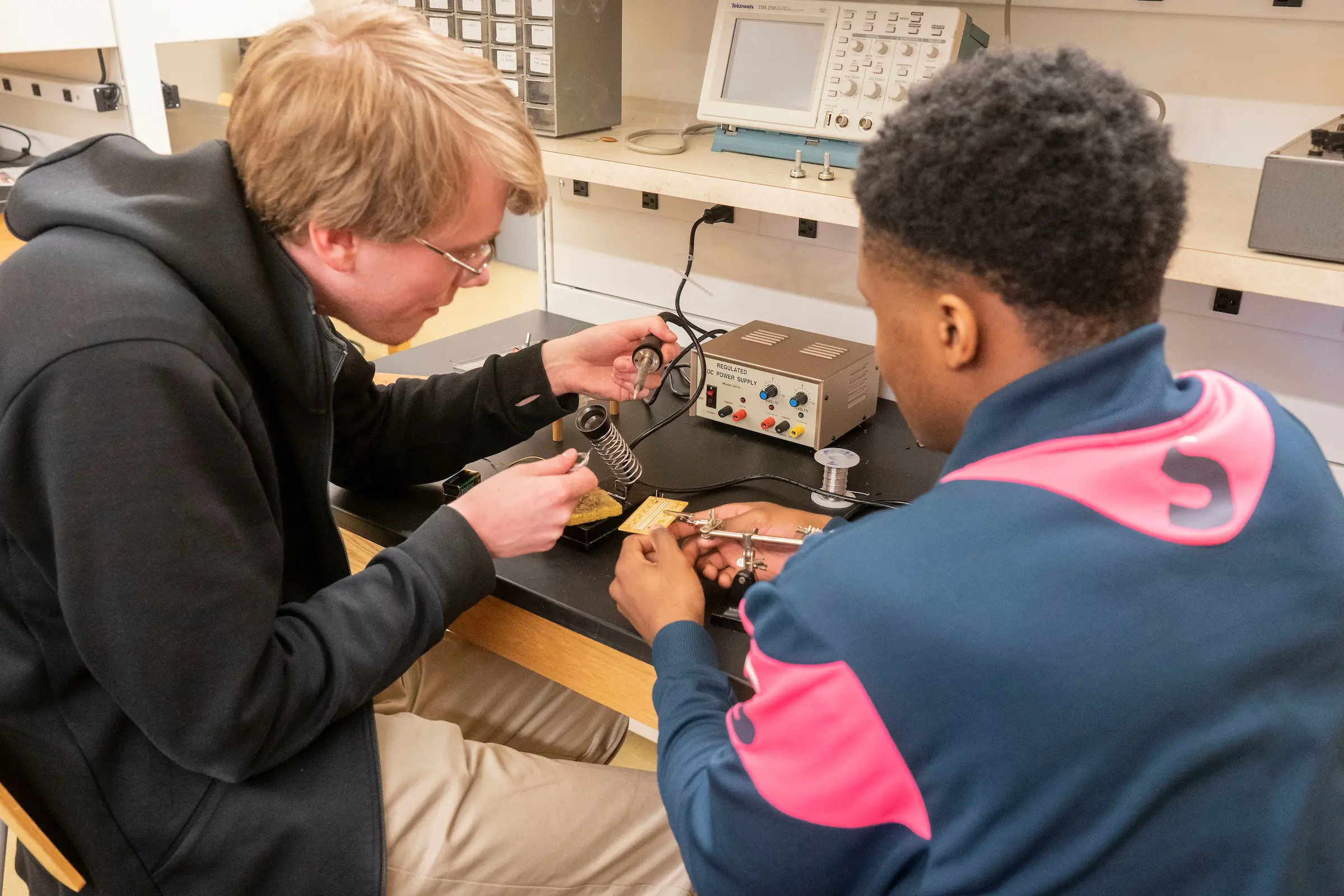
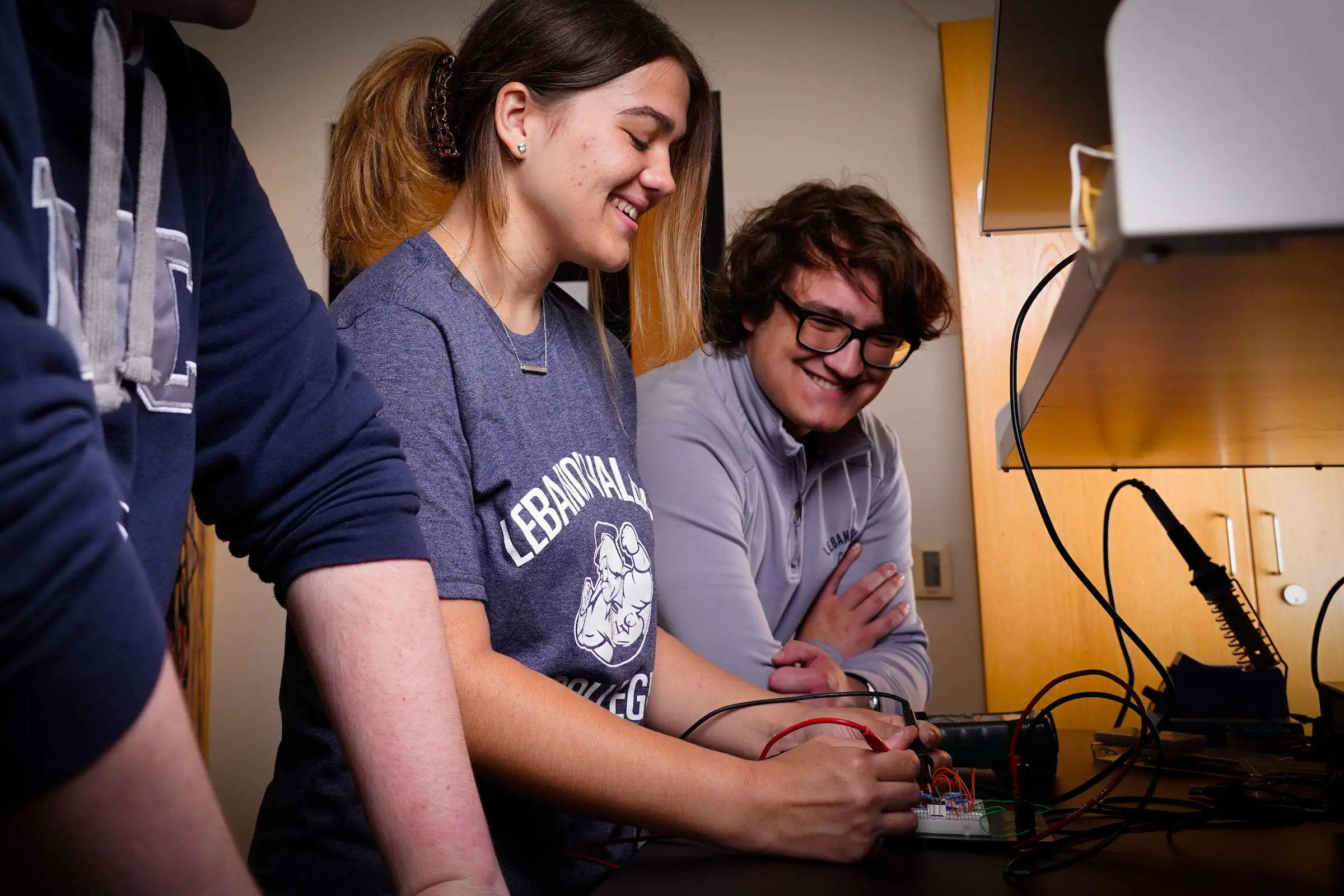
Engineering 3+2
Earn two in-demand bachelor degrees in just five years with our cooperative Engineering program.
You’ll spend the first three years on LVC’s campus earning your bachelor of science in chemistry or physics, then spend two additional years at Case Western Reserve University to complete your accredited engineering degree.
Need-based departmental scholarships are available.
Learn More About the Program
Our Engineering 3+2 program is practical and rigorous, preparing you to solve real-world chemistry or physics problems and giving you the foundational skills that set you up for success in the engineering portion of the program.
$126,880
median annual pay for aerospace engineers, 2022 (Bureau of Labor Statistics)
8%
projected employment growth rate for chemical engineers, 2022–32 (Bureau of Labor Statistics)
In Their Words
LVC, its faculty, and the 3+2 Engineering Program gave me a well-rounded physics and engineering education. Having a liberal arts degree and an engineering degree is an advantage compared to many other engineering graduates. I would recommend LVC’s 3+2 Engineering Program to anyone interested in the engineering fields.
Cale Newswanger
’00,
Engineering Business Leader, Procter and Gamble
At LVC, we train the next generation of scientists. Our students cultivate skills in the classroom and research labs that will take them far. It is gratifying to work with a student for several years in the classroom and lab and see that culminate in co-authoring a journal article and seeing them present research at a major conference. Following their accomplishments after graduation is also rewarding.
Dr. Keith Veenhuizen,
Associate Professor of physics



